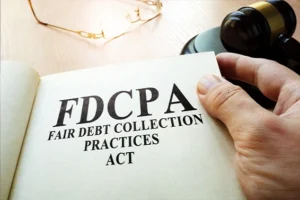One of the most challenging responsibilities that associations can face is HOA debt collection. In Virginia, both homeowners associations and condominium associations must follow strict laws when collecting unpaid fees.
The Importance of HOA Debt Collection

Debt collection in associations is not about punishing residents. It is about keeping the community running smoothly. Associations rely on dues to cover maintenance, utilities, insurance, and reserve funds. When owners fall behind on payments, the shortfall will affect every homeowner.
If delinquencies grow, the board may struggle to pay for essential services, resulting in delayed repairs or increased dues for everyone else. By collecting unpaid fees, the board can protect both the association’s financial stability and the property values of all members.
Can the HOA Collect Unpaid Fees and Assessments?
Yes, Virginia law allows HOAs and condo associations to collect unpaid fees and assessments. This authority comes from two sources.
First, state statutes such as the Virginia Property Owners Association Act and the Virginia Condominium Act grant associations the right to assess and collect fees. Second, the governing documents of each community establish the obligation for owners to pay dues.
When an owner fails to pay, the association has a legal right to pursue collection. The process must follow both state law and the association’s governing documents.
Legal Ways to Collect Unpaid Fees
Virginia associations have several legal tools to collect delinquent fees. Boards must follow proper procedures and always act within the scope of their authority.
Late Fees
Associations may impose late fees when an owner misses a payment. Section 55.1-1824 of the POAA allows associations to impose a late fee (not exceeding the cap outlined in Section 58.1-3915) for any assessment that is 60 days delinquent.
Section 55.1-1964 of the Condominium Act permits the same. That said, both laws defer to the association’s governing documents when it comes to limitations.
HOA Collection Agency
Some boards hire a collection agency for HOA fees. These agencies specialize in recovering debts. They often work on a contingency basis, which means they are only paid if they successfully collect.
Associations must exercise caution when choosing an agency. The Fair Debt Collection Practices Act (FDCPA) applies, so the agency must follow strict rules on communication and conduct.
File a Lawsuit
If an owner refuses to pay after notices and late fees, the association can file a lawsuit in civil court. A successful judgment allows the HOA or condo to recover unpaid dues, late fees, interest, and legal costs.
Liens
Associations can also place a lien on the property to collect debt. Under Section 55.1-1833 (for HOAs) and Section 55.1-1966 (for condos), associations can record a lien against the unit or lot for unpaid dues.
This lien secures the debt to the property. If the owner attempts to sell or refinance, they must first settle the debt.
There are specific requirements associations must follow:
- For HOAs:
- The association must file a memorandum of lien within 12 months from the date the first unpaid fee became due.
- A principal officer of the association (or another authorized officer) must verify the memorandum under oath.
- At least 10 days before filing the memorandum, the association must send a written notice by certified mail to the property owner’s last known address, informing them of the intent to file the lien.
- Once filed, the clerk must record the lien in the deed books and index it under both the homeowner’s name and the association’s name.
- For Condos:
- The association must file a memorandum of lien within 90 days from the date the first unpaid assessment became due.
- A principal officer of the association (or another authorized officer) must verify the memorandum under oath.
- Once filed, the clerk must record the lien (either in deed books or miscellaneous lien books, at the clerk’s discretion) and index it under both the unit owners’ names and the association’s name.
Foreclosure
In severe cases, the lien can lead to foreclosure. Sections 55.1-1833 and 55.1-1966 grant HOAs and condos the authority to foreclose on a property to satisfy a lien for unpaid dues.
There are many requirements an association must fulfill before initiating foreclosure proceedings. This includes proper notice and an opportunity for the owner to cure the debt first.
Due to the severity of this method, it should be an association’s last resort. Associations should only pursue this option when the debts have grown too large and other efforts have failed.
Illegal Ways to Collect Unpaid Fees

While Virginia law gives associations several tools, there are also clear limits. Boards and managers must avoid illegal practices.
The following are what’s not legal when attempting to collect unpaid dues or debts:
- Harassment or Intimidation. Associations can’t threaten, harass, or use abusive language when contacting delinquent owners.
- Unauthorized Fees. Boards can’t charge late fees or penalties beyond what state law or governing documents allow.
- Public Shaming. Posting delinquent owners’ names in newsletters or community spaces is not permitted.
- Self-Help Actions. Locking residents out of amenities or cutting off services without due process violates state law and owner rights.
- Ignoring Due Process. Skipping required notices, hearings, or timelines before pursuing legal remedies is unlawful and undermines enforceability.
- Using Unlicensed Collection Agencies. Partnering with agencies that do not follow the FDCPA or state licensing rules is illegal and risky for the association.
Frequently Asked Questions
Here are the answers to the most frequently asked questions about association debt collection in Virginia.
Do state collection laws govern associations in Virginia?
Yes. Virginia has several laws that apply to HOAs and condo associations. The Virginia Nonstock Corporation Act, the Virginia Property Owners’ Association Act, and the Virginia Condominium Act all apply.
What collection laws apply to associations in Virginia?
Associations in Virginia must follow both federal and state laws. At the federal level, the Fair Debt Collection Practices Act (FDCPA) applies to third-party debt collectors. At the state level, the Virginia Debt Collection Act applies.
Can unpaid association fees affect a homeowner’s credit score?
Yes. Associations themselves don’t usually report debts directly to credit bureaus, but once an account is sent to collections or court, the delinquency can impact credit.
If an association turns over unpaid fees to a collection agency or results in a legal judgment, it can appear on a homeowner’s credit report. This can lower the homeowner’s credit score.
Do heirs inherit HOA debt?

Heirs don’t directly inherit association debt, but any liens or outstanding amounts remain tied to the property. If an heir inherits the property, the liens or debts don’t just vanish. This means associations can still pursue collection actions (and even foreclosure) against the property.
Is an association or its management company considered a collection agency under Virginia law?
No. An association or its management company is not automatically classified as a collection agency. Still, if they collect debts, they must follow both federal and state laws that govern collections. Improper practices, even by a management company, can result in violations of debt collection laws.
What is the statute of limitations for collecting association debt in Virginia?
The statute of limitations is five (5) years. This means a HOA or condo association has five years to pursue unpaid dues through legal action in Virginia. After that period, the debt becomes much harder to enforce in court.
Is there a statute of limitations on collecting association debt in Virginia when the owner lives out of state?
Yes. The statute of limitations still applies. Associations must act within the same five-year period regardless of where the owner resides.
Must a Virginia association try to collect before starting foreclosure proceedings?
Yes. Associations are expected to try less severe measures first. This includes sending notices, applying late fees, and possibly working with a collection agency. Foreclosure should be a last resort when all other reasonable collection efforts have failed.
Can a Virginia association continue to collect after a foreclosure sale?
It depends. Virginia is not a “super lien” state. If a mortgage lender forecloses, their claim takes priority, and the association often receives little or nothing from the sale. If the association itself forecloses, it may collect unpaid dues up to the value of the sale proceeds. Any leftover funds after higher-priority debts are paid may go toward the association, but this outcome is rare.
Are there limits on late fees and penalties an association may charge for unpaid dues in Virginia?
Yes. Under Virginia law, late fees are capped at 5% of the overdue assessment amount.
What steps can homeowners take to challenge a collection attempt on association fees in Virginia?
Homeowners should first request a copy of their account statement from the association or management company. If payments were applied incorrectly or charges appear inaccurate, the owner can dispute them.
If the debt is with a collection agency, the homeowner has 30 days to dispute it in writing under the FDCPA. Disputing in writing is important because it forces the collector to verify the debt before continuing collection efforts.
What delinquency information must a Virginia association disclose?
A homeowner has the right to see their statement of account at any time. The association must provide an accurate accounting of what an owner owes when they request it.
It is important to note that associations can’t share delinquency information with other homeowners or the public. Doing so violates privacy laws and the FDCPA.
Going the Legal Route
Collecting debt is often an uphill battle for associations in Virginia. Hard as it may be, association boards must always follow legal requirements. This ensures that homeowners’ rights are protected and that the association is free from liability.
National Realty Partners is a leading provider of association management services in Virginia. We can help your board manage delinquencies and debt collection. Call us today at 703-435-3800 or request a proposal online to get started!
RELATED ARTICLES:
- What Is a Homeowners Association? Understanding The Basics
- Understanding HOA Rules And Homeowner Rights
- Breaking Down Virginia HOA Laws
